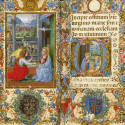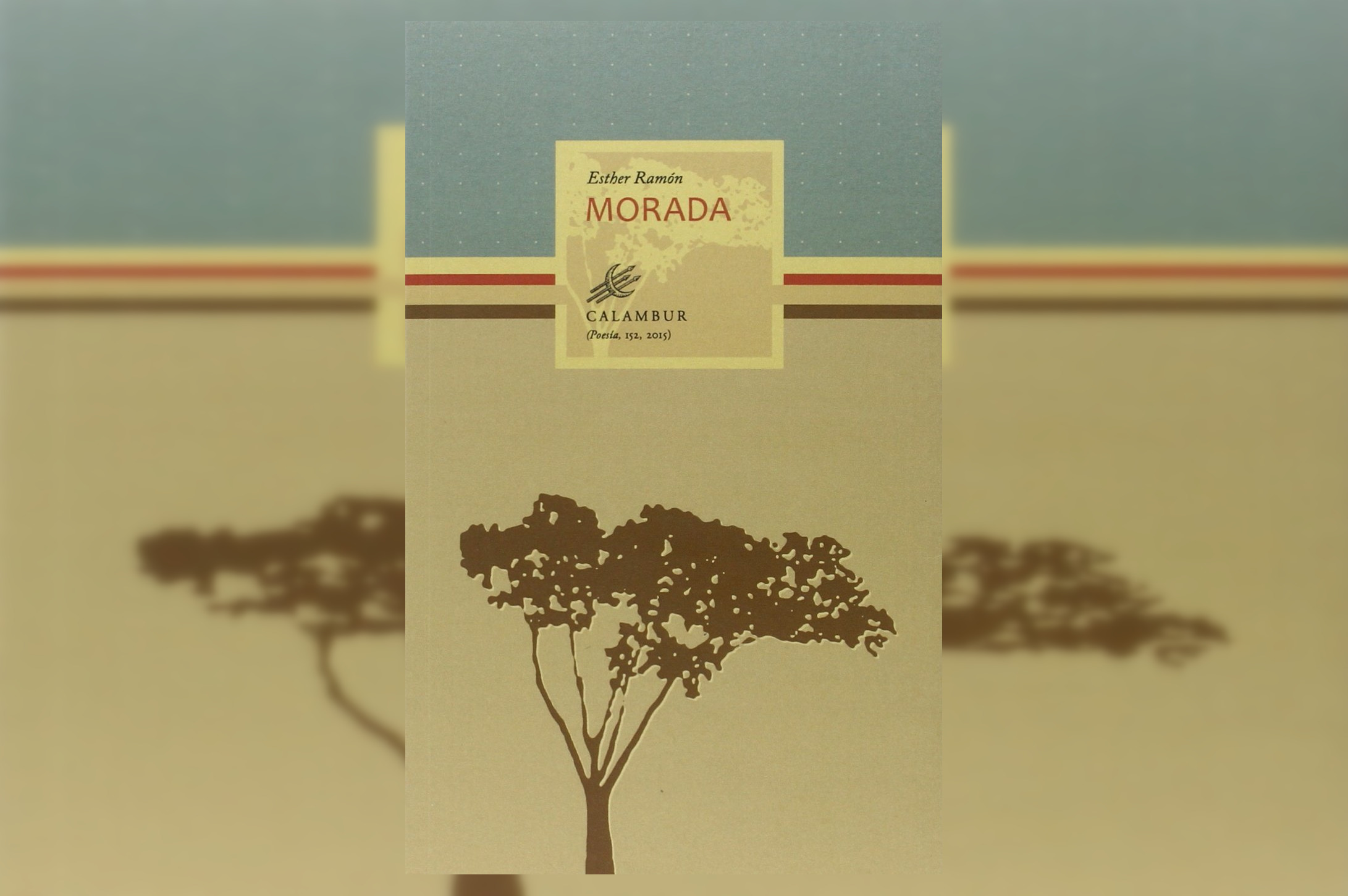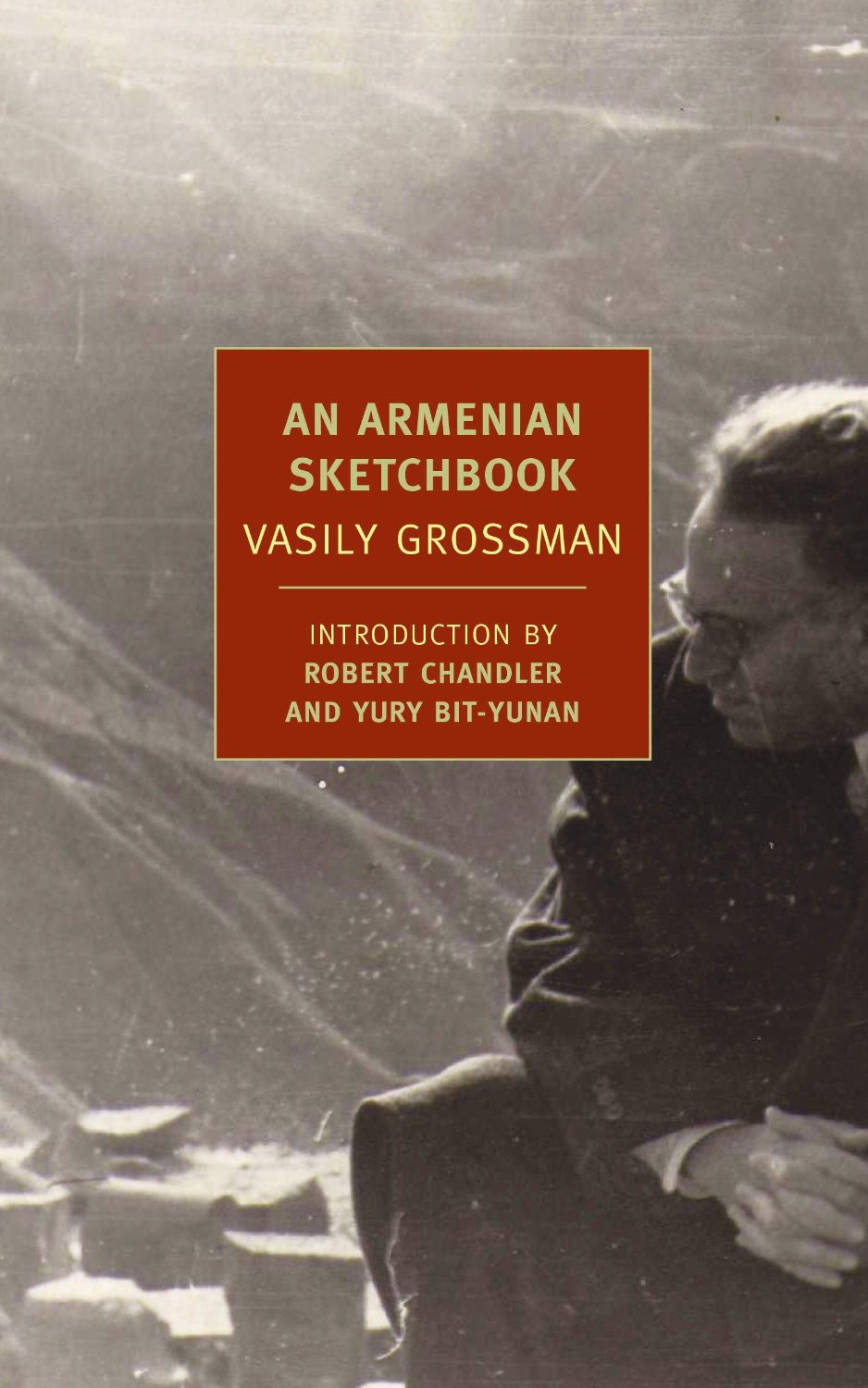Here beginneth the first chapter.
Ghostly friend in God, thou shalt well understand that I find, in my boisterous beholding, four degrees and forms of Christian men’s living; which are these: Common, Special, Singular, and Perfect. Three of these may be begun and ended in this life; and the fourth may by grace be begun here, but it shall ever last without end in the bliss of heaven. And sure as thou seest how they are set here in order, each one after the other, first Common, then Special, after that Singular, and last Perfect: I rightly so thinketh that, in the same order and in the same course, our Lord hath of His great mercy called thee and led thee unto Him by the desire of thine heart.
For first thou know well that when thou were living in the common degree of Christian men’s living in the company of thy worldly friends, it seemeth to me that the everlasting love of His Godhead, through which He made thee and wrought thee when thou were nothing, and since bought thee with the price of His precious blood when thou were lost in Adam, might not suffer thee to be so far from Him in form and degree of living. And therefore He kindled thy desire most graciously, and fastened by it a leash of longing, and led thee by it into a more special state and form of living, to be a servant of the special servants of His; where thou mightest learn to live more specially and more ghostily in His service than thou didst, or mightest do, in the common degree of living before. And what more? Yet it seemeth that He would not leave thee thus lightly, for love of His heart, which He hath evermore had unto thee since thou were an existent. But what did He? Seest thou not how willingly and how graciously He hath pulled thee to the third degree and manner of living, to the height of the Singular? In which solitary form and manner of living thou mayest learn to lift up the foot of thy love and step towards that state and degree of living that is Perfect, and the last state of all.
Here beginneth the second chapter.
Look up now, weak wretch, and see what thou art. What art thou, and why hast thou deserved thus to be called of our Lord? What weary wretched heart and sleeping in sloth is that, which is not awakened with the draught of this love and the voice of this calling? Beware now, wretch, in this time with thine enemy; and hold thee not the holier nor the better for the worthiness of this calling and for the singular form of living that thou art in; but rather the more wretched and accursed, unless thou do that which in thee is goodly, by grace and by counsel, to live after thy calling. And insomuch that thou shouldest be more meek and loving to thy ghostly spouse, that He, that is the Almighty God, King of kings and Lord of lords, would humble Himself so low unto thee, and amongst all the flock of sheep, so graciously would choose thee to be one of His special ones, and since set thee in the place of pasture, where thou mayest be fed with the sweetness of His love, in foretaste of thine heritage, the kingdom of heaven.
Do one thing, I pray thee, fast. Look now forwards, and let be what is backwards. And see what thou lackest, and not what thou hast: for that is the readiest getting and keeping of meekness. All thy life now behooveth in all ways to stand in desire, if thou shalt profit in degree of perfection. This desire behooveth in all ways to be wrought in thy will by the hand of Almighty God and thy consent. But one thing I tell thee: He is a jealous lover and suffereth no fellowship, and He desireth not to work in thy will unless He be only with thee by Himself. He asketh none for help, but only thyself. He willeth that thou do but look upon Him and let Him alone. And keep thou the windows and the doors, for flies and enemies are assailing. And if thou be willing to do this, thou need but meekly press upon Him with prayer, and soon will He help thee. Press on then: let it be seen how thou bearest thyself. He is most ready, and doth but await thee. But what shalt thou do, and how shalt thou press?
Here beginneth the third chapter.
Lift up thine heart unto God with a meek stirring of love; and contemplate Himself, and none of His qualities. And as thou thereto look, loathe to think on aught but Himself, so that nothing work in thy mind nor in thy will but only Himself. To do this in thee is to forget all the creatures that ever God made and the works of them, so that thy thought nor thy desire be not directed nor extended to any of them, neither in general nor in special. Both let them be, and take no heed of them.
This is the work of the soul that most pleaseth God. All saints and angels have joy in this work, and hasten themselves to help it with all their might. All fiends are angry with what thou thus dost, and are sworn to thwart it to the extent that they are able. All men living on earth are wonderfully helped by this work, thou knowest not how. Ye, the souls in purgatory are eased of their pain by virtue of this work. Thyself art cleansed and made virtuous by no work so much as this. And yet it is the lightest work of all, when a soul is helped with grace in sensory desire, and soon done. But also it is hard and wonderful for thee to do.
Weaken not therefore, but travail therein until thou feel the desire. For at the first time when thou dost it, thou findest but a darkness, and as it were a cloud of unknowing, thou knows not what, saving that thou feelest in thy will a naked intent unto God. This darkness and this cloud is, howsoever thou dost, betwixt thee and thy God, and blocks thee that thou mayest not see Him clearly by the light of understanding in thy reason, nor feel Him in the sweetness of love in thine affection. And therefore resign thee to abide in this darkness as long as thou mayest, evermore crying after Him that thou lovest; for if ever shalt thou feel Him or see Him, as it may be here, it behooveth always to be in this cloud and in this darkness. And if thou wilt busily travail as I bid thee, I trust in His mercy that thou shalt come thereto.
Here beginneth the fourth chapter.
But in order that thou shalt not err in this working, and imagine that it be otherwise than it is, I shall tell thee a little more thereof, as me thinketh.
This work asketh no great length of time ere it be once and truly done, as some men presume for it is the shortest work of all that man may imagine. It is neither longer nor shorter than is an instant; which instant, by the definition of true philosophers in the science of astronomy, is the least division of time; and it is so little that, for the littleness of it, it is indivisible and nearly incomprehensible. This is that time of which it is written: All time that is given to thee, it shall be asked of thee how thou hast utilized it. And a skillful thing it is that thou give account of it; for it is neither longer nor shorter, but even equivalent to one sole stirring that is within the principal working power of thy soul, which is thy will. For even so many willings or desirings—no more and no fewer—may be and are in one hour in thy will, as are atoms in one hour. And if thou were reformed by grace to the first state of man’s soul, as it was before sin, then thou shouldest evermore, by help of that grace, be lord of that stirring or of those stirrings; so that none wander astray, but all should stretch into the sovereign desirable and into the highest willable thing, which is God.
For He is even suited to our soul by the measuring of His Godhead; and our soul even suited unto Him by the worthiness of our creation in His image and in His likeness. And He by Himself without more, and none but He, is fully sufficient, and much more, to fulfill the will and the desire of our soul. And our soul, by virtue of this reforming grace, is made fully sufficient to comprehend all of Him by love, which is incomprehensible to all created knowing capacity, as is angel and man’s soul. (I mean by their knowing and not by their loving, and therefore I call it in this case knowing capacity).
But see: all reasoning creatures, angel and man, hath in them, each one by themselves, one principal working power, which is called a knowing power, and another principal working power, which is called a loving power: of which two powers, the first, which is the knowing power, God, that is the maker of them, is evermore incomprehensible; and the second, which is the loving power, in each one separately He is fully comprehensible, insomuch that one loving soul only in himself, by virtue of love, should comprehend in himself Him that is fully sufficient—and much more, without comparison—to fill all the souls and angels that ever may be. And this is the endless, marvelous miracle of love, which shall never end; forever shall He do this, and never shall He cease to do it. See, who by grace see they may, for the feeling of this is endless bliss; and the contrary is endless pain.
And therefore whoso were reformed by grace thus to continue in the keeping of the stirrings of the will, should never be in this life—as he may not be without these stirrings in kind—without some taste of the endless sweetness; and in the bliss of heaven without the full food. And therefore have no wonder that I steer thee to this work. For this is the work, as thou shalt hear later, in which man should have continued if he never had sinned, and to which working man was made, and all things for man, to help him and further him thereto, and by which a man shall be repaired again. And for the failing in this working a man falleth deeper and deeper in sin, and further and further from God. And by the keeping and continual working in this work only, without more, a man evermore riseth higher and higher from sin, and nearer and nearer unto God.
And therefore take good care unto time, and how that thou spendeth it. For nothing is more precious than time. In one little moment, as little as it is, may heaven be won and lost. A token that time is precious: for God, who is giver of time, giveth never two times together, but each one after the other. And this He doth, for He will not reverse the order or the regular course in the causation of His creation. For time is made for man, and not man for time. And therefore God, who is the ruler of high nature, will not in the giving of time go before the stirring of nature in a man’s soul; which is even according to one time only. So that man shall have no excuse against God in the Judgment and at the giving of account of the spending of time, saying: “Thou givest two times at once, and I have but one stirring at once.”
But sorrowfully thou sayest now: “How shall I do? and since this is such that thou sayest, how shall I give account of each thing separately? I that unto this day, now of four and twenty years of age, never took heed of time? If I would now amend it, thou thinkest well, by very reason of thy words written before, it may not be after the course of nature nor of common grace, that I should be able, or else deal wholly with, any more times than those that are still to come. Ye, and moreover well I think, by logic itself, that of those that are to come I shall on no wise, for abundance of frailty and slowness of spirit, deal wholly with one out of an hundred; so that I am very confused in these reasons. Help me now, for the love of Jesus!”
Right well hast thou said “for the love of Jesus.” For in the love of Jesus there shall be thy help. Love is such a force that it maketh all things common. Love therefore Jesus, and all things that He hath are thine. He by His Godhead is maker and giver of time. He by His humanity is the very keeper of time. And He, by His Godhead and His humanity together, is the truest judge and the asker of account of the spending of time. Knit thee therefore to Him by love and by belief; and then by virtue of that knot thou shalt be common partner with Him and with all that by love so be knit unto Him; that is to say, with our Lady Saint Mary, that was full of all grace in keeping of time with all the angels of heaven that never may lose time, and with all the saints in heaven and on earth, that by the grace of Jesus keep time most justly in virtue of love.
Lo! here lieth comfort; construe thou clearly and pluck thee some profit. But of one thing I warn thee amongst all others: I cannot see who may truly lay claim to community with Jesus and His just Mother, His high angels and also with His saints, if it be not such a one that doth as is in him, with helping of grace, in the keeping of time; so that he be seen to be a profiter on his part, so little as it is, unto the community, as each one of them doth on theirs.
And therefore take heed of this work and of the marvelous manner of it within thy soul. For if it be truly conceived, it is but a sudden stirring, and as it were unadvised, speedily springing unto God as sparkles from the coal. And it is marvelous to number the stirrings that may be in one hour wrought in a soul that is disposed to this work. And yet, in one stirring of all these, he may have suddenly and perfectly forgotten all created things. But soon after each stirring, for corruption of the flesh, it falleth down again to some thought or to some done or undone deed. But what thereof? for soon after, it riseth again as suddenly as it did before.
And here may men shortly conceive the manner of this working, and clearly know that it is far from any fantasy, or any false imagination, or quaint opinion; which are brought in, not by such a devout and a meek blind stirring of love, but by a proud, curious, and an imaginative mind. Such a proud, curious mind it behooveth in all ways to be brought down and stiffly trodden under foot, if this work shall truly be conceived in purity of spirit.
For whoso heareth this work either be read or spoken, and think that it may or should be come to by travail in their mental faculties (and therefore they sit and search in their minds how that it may be, and in this curiosity they scour their imagination, peradventure, against the course of nature, and they feign a manner of working, which is neither bodily nor ghostly): truly this man, whosoever he be, is perilously deceived; insomuch that, unless God in His great goodness show His merciful miracles and make him soon to leave this work and make him take counsel of proven workers, he shall fall either into frenzies, or else into other great mischief of ghostly sin and devils’ deceits; through which he may lightly be lost, both life and soul, without any end. And therefore, for God’s love, be wary in this work, and travail not in thy mind nor in thine imagination in no wise. For I tell thee truly, it may not be come to by travail in them; and therefore leave them and work not with them.
And think not, for I called it a darkness or a cloud, that it be any cloud congealed of the humors that fly in the air, nor yet any darkness such as is in thy house on nights when the candle is out. For such a darkness and such a cloud mayest thou imagine with curiosity of mind, for to bear before thine eyes in the lightest day of summer; and also, conversely, in the darkest night of winter thou mayest imagine a clear shining light. Let such be falsehood; I mean not thus. For when I say darkness, I mean a lack of knowledge; as all those things that thou knowest not, or else that thou hast forgotten, it is dark to thee, for thou seest it not with thy ghostly eye. And for this reason it is not called a cloud of the air, but a cloud of unknowing, that is betwixt thee and thy God.
Here beginneth the fifth chapter.
And if ever thou shalt come to this cloud, and dwell and work therein as I bid thee, it behooveth thou, as this cloud of unknowing is above thee, betwixt thee and thy God, rightly so put a cloud of forgetting beneath thee, betwixt thee and all the creatures that have ever been made. Thee thinketh, peradventure, that thou art very far from God, for this cloud of unknowing is betwixt thee and thy God; but surely, and it be well conceived, thou art much further from Him when thou hast no cloud of forgetting betwixt thee and all the creatures that have ever been made. As often as I say “all the creatures that have ever been made,” as often I mean, not only these creatures, but also all the works and the conditions of these selfsame creatures. I exclude not one creature, whether they be bodily creatures or ghostly, nor yet any condition or work of any creature, whether they be good or evil; but shortly to say, all should be hid under the cloud of forgetting in this case.
For although it be most profitable sometimes to think of certain conditions and deeds of some certain special creatures, nevertheless yet in this work it profiteth little or naught. Wherefore, memory or thinking of any creature that ever God made, or of any of their deeds either, it is a manner of ghostly light; for the eye of thy soul is opened on it and even fixed thereupon, as the eye of an archer is upon the target that he shooteth to. And one thing I tell thee, that all things that thou thinkest upon are above thee for the time, and betwixt thee and thy God. And insomuch thou art the further from God, that aught is in thy mind but God alone.
Ye, and if it be courteous and seemly to say, in this work it profiteth little or naught to think of the kindness or the worthiness of God, nor on our Lady, nor on the saints or angels in heaven, nor yet on the joys in heaven: that is to say, with a special beholding to them, as thou wouldst by that beholding feed and increase thy purpose. I trust that on no wise it should be so in this case and in this work. For although it be good to think upon the kindness of God, and to love Him and praise Him for it: yet it is far better to think upon the naked existence of Him, and to love Him and praise Him for Himself.
Here beginneth the sixth chapter.
But now thou askest me and sayest: “How shall I think on Himself, and what He is?” And to this I cannot answer thee but thusly: “I know not.”
For thou hast brought me with thy question into that same darkness, and into that same cloud of unknowing that I would thou were in, thyself. For of all other creatures and their works—ye, and of the works of God Himself—may a man through grace have fullness of knowing, and well be able to think on them; but of God Himself can no man think. And therefore I will leave all those things that I can think, and choose in my love that thing that I cannot think. For He may well be loved, but not thought. By love may He be gotten and held; but by thought, neither. And therefore, although it be good sometimes to think of the kindness and the worthiness of God in particular, and although it be a light and a party to contemplation, nevertheless in this work it shall be cast down and covered with a cloud of forgetting. And thou shalt step above it stalwartly, but longingly, with a devout and a pleasing stirring of love, and strive for to pierce that darkness above thee. And smite upon that thick cloud of unknowing with a sharp dart of longing love, and go not thence for things that befalleth.
Here beginneth the seventh chapter.
And if any thought arise to press in all ways above thee, betwixt thee and that darkness, and ask thee saying: “What seekest thou, and what wouldst thou have?” say that it is God that thou wouldst have. “Him I covet, Him I seek, and naught but Him.” And if it ask thee what is this God, say thou that it is the God that made thee and bought thee, and that graciously hath called thee to His love. And in Him say thou hast no understanding. And therefore say: “Go thou down again.” And tread it fast down with a stirring of love, though it seem to thee perfectly holy, and seem to thee as if it would help thee to seek Him.
For, peradventure, it will bring to thy mind diverse, arabesque, fair and wonderful points of His kindness, and say that He is fully sweet and fully loving, fully gracious and fully merciful. And if thou wilt hear it, it desireth no better; for at the last it will thus jangle ever more and more till it bring thee lower to the mind of His Passion. And there will it let thee see the wonderful kindness of God; and if thou hear it, it seeketh no better. For soon after it will let thee see thine old wretched living; and peradventure, in seeing and thinking thereof, it will bring to thy mind some place that thou hast dwelt in before this time. So that at the last, ere ever knowest thou, thou shalt be scattered thou knowest not where. The cause of this scattering is that thou heard it first willfully, answered it, received it, and lettest it alone.
And yet, nevertheless, the things that it said were both good and holy; ye, and so holy that any man or woman that expecteth to come to contemplation without many such sweet meditations of their own wretchedness, the Passion, the kindness and the great goodness and the worthiness of God coming before, certainly he shall err and fail in his purpose. And yet, nevertheless, it behooveth a man or a woman, that hath long time been employed in these meditations, to completely leave them, and put them and hold them far down under the cloud of forgetting, if ever shall he pierce the cloud of unknowing betwixt him and his God.
Therefore, what time that thou purposest thee to this work, and feelest by grace that thou art called of God, lift then up thine heart unto God with a meek stirring of love. And intend love for the God that made thee, and bought thee, and that graciously hath called thee to this work; and receive no other thought of God. And yet not all these, but as thou wisheth; for it sufficeth enough a naked intent directed unto God, without any other cause than Himself.
And if thee wisheth, have this intent wrapped and folded in one word, for thou shouldest have a better hold thereupon, take thee but a little word of one syllable; for it is better than of two, for ever the shorter it is, the better it accordeth with the work of the spirit. And such a word is this word God or this word love. Choose thee as thou wilt, or another as thee pleaseth: whichever that thee liketh best of one syllable. And fasten this word to thine heart, so that it never goeth thence for anything that may befalleth.
This word shall be thy shield and thy spear, whether thou ridest in peace or in war. With this word thou shalt beat on this cloud and this darkness above thee. With this word thou shalt smite down all manner of thought under the cloud of forgetting; insomuch that if any thought press upon thee to ask thee what thou wouldest have, answer it with no more words but with this one word. And if it propose to thee, of its great learning, to expound to thee upon that word and to tell thee the conditions of that word, say to it that thou wilt have it whole only, and not broken nor undone. And if thou wilt hold thee fast to this purpose, be thou sure it will not long abide. And why? For thou wilt not let it feed itself on such sweet meditations as touched before.
__
Translator’s Note: The “Cloude of Unknowyng” is a fourteenth century work of Christian mystical instruction written by an anonymous Englishman, probably a member of a monastic community. Its main concern is the cultivation of a deeper awareness of God through a systematic cleansing of sensory experience and knowledge. I have attempted this translation, word-for-word from the Middle English, for the purposes of fashioning the most agreeable version possible for my own personal study and contemplation, as well as becoming more acquainted with the teachings therein through close consideration of the source text, which in this case was the TEAMS edition edited by Patrick J. Gallacher, based in turn on the following manuscripts: British Library MS Harleian 674, British Library MS Royal 17 C xxvi, and Cambridge University Library Kk.vi.26. Also of great assistance was Evelyn Underhill’s 1922 edition for stylistic queues, as well as Robert Myles’ 1986 essay “‘This Litil Worde ‘Is’”: The Existential Metaphysics of the Cloud Author,” originally published in Florilegium, for philosophical clarification. Though made to appeal to my own literary tastes and poetic ear, I hope that this translation might be of use to others as well.
James Bradley is an artist and writer living in San Francisco, California. His paintings have been exhibited at the Berkeley Art Museum, the Verge Art Fair, and elsewhere. His translation of The Cloud of Unknowing was published as a chapbook by Hexagon Press in 2016. James received an MFA in painting from the California College of the Arts in 2009.





Thanks for this.
I am just starting to work with the original, wrestling with the need to learn Middle English when I already have a lot on my plate right now; this is helpful.
If you have any suggestions or anecdotes about how you are doing this (as a non-scholar in ME), I would appreciate hearing it.